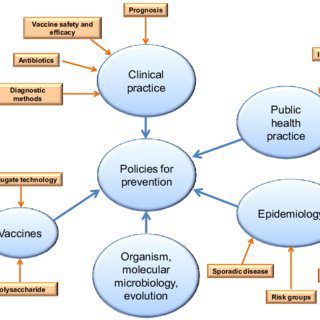Prevention of meningitis
Polysaccharide vaccine or conjugate vaccine?
Polysaccharide vaccine. Vaccine composed of polysaccharides (carbohydrates formed from several simple sugars) obtained from bacteria (pneumococcus, Hib, meningococcus, etc.). Conjugate vaccine. These vaccines combine bacterial polysaccharides with carrier proteins. This technique allows a stronger and more lasting immune response in young children. |
Basic preventive measures in the event of an epidemic |
Hygiene measures
Way of life
|
Other measures to prevent meningitis |
vaccination Certain types of bacterial meningitis can be prevented by vaccination, but not all. In recent years, there has been a vaccine against meningococcal meningitis type B: Bexsero. However, no vaccine can protect against all strains of bacteria that can cause meningitis:
If you come into contact with a sick person, you should be treated if: – one has been exposed directly to the nasopharyngeal secretions of the sick person in the 10 days preceding the onset of symptoms (people who live / are kept under the same roof as the index case during its period of contagiousness) – Or if not, the doctor assesses the risky situations. It is considered important in the event of a moment of proximity of less than 1 meter to the sick person, a face-to-face situation, a meeting lasting more than an hour, or mouth-to-mouth contact. .
As a precaution, relatives of the person affected by Rifampicin are also treated with antibiotics (oral treatment for 2 days). In the event of contraindication or known resistance of this bacterium to rifampicin: Ceftriaxone (injectable) or Ciprofloxacin (oral), in single dose. This should be started as soon as possible within 24 to 48 hours if possible. This treatment is unnecessary more than 10 days after contact with the sick person. |










